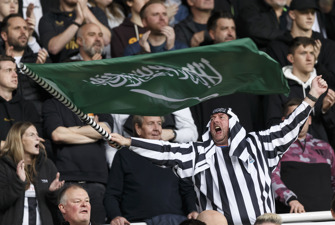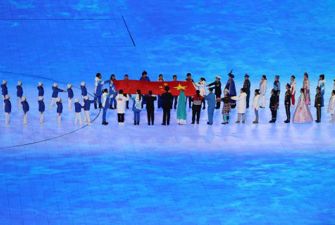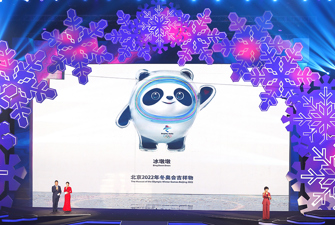A sportswashing Qatarstrophe
In a year of major sport events in countries like Qatar and China, many discuss whether the use of sport for political ends are better described as sportswashing or soft power. Jules Boykoff argues that soft power can offer leverage on understanding sportswashing, but sportswashing also highlights the limitations of the soft power approach.
"The situation makes you angry. How can it not?" said Jürgen Klopp of the Qatar 2022 World Cup, before it kicked off on November 20. The Liverpool FC manager had previously slammed the practice of sportswashing.
Between the Qatar World Cup, the Saudi-funded LIV Golf tournament, and the Beijing Winter Olympics, 2022 has been the year of the sportswash. And yet, sportswashing suffers from definitional promiscuity.
I define sportswashing as political leaders using sports to appear important or legitimate on the world stage while stoking nationalism and deflecting attention from chronic social problems and human-rights woes on the home front. Sportswashers use mega-events to try to stoke national prestige and to advance economic or political goals.
To be sure, some deride sportswashing as a condescending cudgel wielded solely against autocracies in the Global South. But sportswashing happens in Western democracies, too.
Exhibit A: Los Angeles Mayor Eric Garcetti used the scourge of homelessness to sportswash, stating on late-night television that "I’m confident that by the time the Olympics come, we can end homelessness on the streets of LA."
Exhibit B: London 2012 Games organizers promised the Olympics would inspire an uptick of young people embracing exercise and sport. However, The Lancet found that no such surge occurred.
Sportswashing is also geared towards a domestic audience
When people ask whether sportswashing works, they often implicitly have an international audience in mind. This misses a key factor: sportswashing is frequently geared toward a domestic audience.
At the Beijing Winter Olympics earlier this year, Games organizers included a Uyghur cross-country skier from the Xinjiang Province as a high-profile Olympic torch handler. To international observers this was interpreted as a thumb in the eye of the West, but in China it was evidence of a unified, multi-ethnic state.
Danish researcher Stanis Elsborg writes that during the 2008 Beijing Summer Olympics opening ceremony, Chinese President Hu Jintao appeared on screen 23 times in the Chinese broadcast—including when Hong Kong and Taiwan were introduced—but only seven times in the international version. Beijing used the Olympics to send clear messages to people in China.
Other examples abound. Mega-events researcher Sven Daniel Wolfe of the University of Lausanne has argued convincingly that when Russia hosted the 2014 Olympics in Sochi, it allowed Vladimir Putin and his allies to advance a singular sense of "Russian-ness" amid competing notions that had been circulating since the fall of the Soviet Union.
Wolfe asserts that inside Russia ahead of the Sochi Olympics, domestic media outlets flooded the airwaves with positive, feel-good stories that generated patriotic pride.
Athlete marshals light up to form a Russian flag during the opening ceremony of the 2014 Sochi Winter Olympics. The Olympics gave Putin a platform to advance the notion of Russian-ness and generate patriotic pride within Russia. Photo: Clive Mason/Getty Images
During the actual Olympics, he detected an unmistakable pivot whereby "many Russians — even those with avowed pro-Western, anti- Putin views — took umbrage at what they considered biased, overly negative coverage from the West. They called this ‘Western zloradstvo’ or, literally, evil-revelling."
Using Western criticism—and in particular, USAmerican scolding—as a foil, the Olympic Games helped Putin rally the domestic population around the flag.
Not only can such mega-event-induced messaging work domestically, but it can pave a perilous path toward war. Before and during the Sochi 2014 Winter Olympics, Vladimir Putin’s domestic approval ratings surged. Then, between the Olympics and Paralympics, Putin invaded Crimea.
This spotlights the important fact that sportswashing is no mere branding exercise. It can actually be a conveyor belt of life and death. Sportswashing is not an automatic trampoline for war, of course, but it can rev up patriotism in domestic audiences in ways that help structure permission for geopolitical bellicosity.
Just shut up and dribble
When it comes to the World Cup in Qatar, let’s not forget that the original sin for the 2022 World Cup was FIFA’s decision to award it to the peninsular Gulf country in the first place.
Not only did FIFA’s maneuver emerge out a deep morass of bribery allegations , but it was also built on a firm foundation of hypocrisy. FIFA festoons its social media avatars with rainbow flags and its own statutes assert that "FIFA is committed to respecting all internationally recognised human rights and shall strive to promote the protection of these rights."
Meanwhile, migrant workers in Qatar have suffered terribly, with many dying while building infrastructure for the World Cup. People in same-sex relationships risk seven-year prison sentences. Male guardianship rules severely curtail a woman’s ability to freely marry or to accept certain jobs. Women told Human Rights Watch that in order to secure some forms of reproductive health care, they needed to provide proof of marriage.
When Gianni Infantino took the reins at FIFA in 2016 — after previous president Sepp Blatter resigned in disgrace — he could have advocated for a location change or pressured Qatar to improve its human rights. Instead, he took up residence in Qatar and has largely remained silent.
When he was asked what he was doing to assist the families of migrant workers, he minimize their misery: "When you give work to somebody, even in hard conditions, you give him dignity and pride. It’s not charity."
FIFA President Gianni Infantino during a press conference ahead of the opening match of the FIFA World Cup in Qatar 2022. In his speech, Infantino accused Western critics of the human rights situation in Qatar of being outright racist. Photo: Christopher Lee/Stringer/Getty Images
In a letter to all teams participating in the World Cup, FIFA urged players to "not allow football to be dragged into every ideological or political battle that exists." Just shut up and dribble, in other words.
Qatar’s public rebuttal to their human-rights critics has already taken shape. Sheikh Tamim bin Hamad Al Thani argued that his country has faced an "unprecedented campaign" of criticism based on "fabrication and double standards."
Qatar’s Labor Minister said supporters of a compensation fund for World Cup migrant workers had "racist motivations" against Arab countries and that significant improvements have been made for worker rights.
Slow changes in systems inherited from the West
There is a tiny grain of truth to these responses. The country’s notorious kafala system, inherited from the British, has been reformed, although critics maintain there is not enough enforcement and that migrant workers remain imperiled, forbidden from forging unions or striking.
And it should be noted that in the 1880s, European colonial powers introduced anti-gay penal codes in numerous Middle Eastern countries, creating anti-LGBT laws in the first place.
Umer Hussain, a sports scholar at Ripon College, argues that much of the media coverage of the Qatar World Cup in the English-speaking world ripples with an "epistemic violence" that conflates the Qatari government and everyday people while transmogrifying them into an unseemly Other.
He told me that all too often, "former colonial subjects’ identities are homogenized, and their behaviors are oversimplified without acknowledging the historical, socio-cultural, and economic realities." As an example, he pointed to "numerous barbaric laws in the Arab world, like homosexuality laws, that are the direct products of British colonialism."
FIFA’s decision to hand the 2022 World Cup to Qatar placed the country under the global klieg lights. Qatar’s kafala system for migrant workers earned special scrutiny. After all, under the country’s worker-sponsorship program, migrant laborers had to surrender their passports to their employers. Changing jobs was nearly impossible, while organizing a strike was out of the question.
Qatar has passed new labour laws in the run up to the World cup, but human-rights groups have criticised the country's lack of commitment to enforcement of the law. Photo: Warren Little/Getty Images
Dr. Hussain noted that, after coming under immense global pressure generated by the World Cup, Qatar "made meaningful changes in its human rights laws as compared to many Muslim countries in the region. However, those changes are sidelined in the popular media."
The country passed a new labor law in 2020 that increased the minimum wage and allowed workers to more freely change employers.
Researcher Natasha Iskander of New York University told the 'Today, Explained' podcast, "These reforms look very good on paper. But…in practice, the labor relations in Qatar have not changed that meaningfully from when the kafala system existed under its previous iteration."
In short, vigilance is required to make the law reliable and effective.
Human-rights groups have called out Qatar for its lack of commitment to enforcement of the law. Amnesty International asserts that Qatar has pursued the investigation of worker deaths at a snail’s pace and has failed to provide fair compensation for workers’ families.
Soft power and sportswashing
Are the changes in Qatari labor law proof that soft power works? The concept of soft power, which overlaps with sportswashing in some ways, has gained enormous traction in academia.
In his 2004 book 'Soft Power: The Means to Success in World Politics', political scientist Joseph Nye argued that soft power "rests on the ability to shape the preferences of others" through co-optation rather than coercion. The goal is to attract people to one’s values, ideals, and ideas rather than compelling them with hard power in the form of military threats or economic sanctions.
Although Nye suggested that soft power and hard power should be considered on a spectrum ranging from hard-power command to soft-power co-optation, it is often treated as a wrought-iron binary, as Wolfe notes when he writes that Nye’s "interpretation still presents the powers fundamentally as opposites."
Moreover, as New York University Professor Christopher Gaffney points out, "If there is a spectral relation between hard and soft, where does something like the World Cup fall when it requires military capacity, steel and concrete, financial flows, and the soft flesh of migrant workers caught in the machines and machinations of geopolitics, hypertrophied egos, and the global spectacle?"
Gaffney concluded, "Soft power is difficult to quantify," making it "a weak analytic lens."
In addition, because the concept of soft power emerged in the context of international relations, it has a built-in blind spot for domestic considerations, which are vital for understanding sportswashing.
Recent research by Jonathan Grix, Joonah Brian Jeong, and Hyungmin Kim has made theoretical moves to address this, expanding Nye’s original conception of soft power into a "soft power package" that more directly addresses domestic factors.
Is soft power actually soft?
But is soft power all that soft, really? Scholar Janice Bially Mattern argues that soft power may be "nonphysical," but it is still "coercive" especially when it’s backed "sociolinguistically" and "through representational force."
In other words, soft power’s supposed attractive force can arrive Kevlar-wrapped in the military carapace of hard power. So, the iron fist of hard power—conveyed unequivocally through the language of messaging—can sit snugly inside the velvet glove of soft power.
And because, according to most academic and popular accounts alike, it is almost always the Global North that wields soft power, the concept tends to privilege the refraction of Western-centric power relations, ideologies, and political proclivities.
Soft power can offer leverage on understanding sportswashing, but sportswashing, as defined here in this essay, also highlights the limitations of the soft power approach.
To be clear, evidence is scant that hosting the World Cup or Olympics jumpstarts a human-rights heyday. A study in the 'American Political Science Review' found that with the 1978 World Cup, the Argentinean dictatorship preemptively suppressed political dissent ahead of the tournament, but dialed down its repression during the tournament when international journalists were present, only to orchestrate a “repressive rebound” afterwards.
Sophie Richardson, the China Director at Human Rights Watch, asserted that the Beijing 2008 Olympics were actually "a catalyst for abuses, leading to massive forced evictions, a surge in the arrest, detention, and harassment of critics, repeated violations of media freedom, and increased political repression." Qatar may well conform to this trend.
Liverpool boss Jürgen Klopp resented the fact that, in Qatar, footballers would be asked an array of questions about politics and human rights: "I don’t like the fact that players now have to send a message."
But socially conscious players are one of the few sources of fightback against the perils of sportswashing. If footballers armed with both courage and knowledge choose to ignore human-rights abuses, they risk playing the role of de facto human shields for FIFA and its glitzy spectacle, accomplices to sportswashing.
Let’s be clear: sportswashing is no passing fad. With Saudi Arabia angling for the 2030 men’s World Cup in a joint bid with Egypt and Greece, the topic promises to be in the news for years to come.
When Argentinean mega-star Lionel Messi became a tourism ambassador for Saudi Arabia, he showed one possible path. But with a rising tide of socially conscious athletes increasingly standing up for human rights around the globe, sportswashing’s effectiveness is not etched in stone. Sportswashing is a political flashpoint, and one that is not going away anytime soon.



